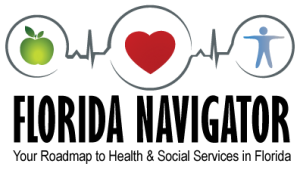The Savvy Senior
By Robert Goodman, MSW
Things to Know as we Retire and Age
May is Older Americans Month. This is a good time to discuss some important things to keep in mind when we retire and as we age.
I used to tell my clients “all you need to know when you retire is how to sign your name and know your Social Security number”. The world has changed a lot since those days. Now you have to be informed about health care, available social services, advocacy, legislation, Medicare fraud, scams against the elderly, and your rights and benefits.
Independence is very important to all of us. Many of us have grown up in a society that assigned certain roles to men and women. Those roles may change when one is alone after divorce or losing a loved one. In today’s world it is important for both men and women to know how to shop, cook, plan a menu, clean and maintain a home, manage finances and make small repairs. It is important to learn them before you need them.
It is also important to learn about nutrition. The Department of Health and Human Service’s (HHS) health.gov website explains that many older adults don’t eat enough foods that contain calcium, potassium, fiber, magnesium, and vitamins A, C, D, and E. Fruits and vegetables contain many of these nutrients. Vitamin E is found in many ready-to-eat cereals, nuts, and vegetable oils. Calcium and vitamin D are found in fat-free and low-fat milk. At the same time, many older adults eat too many foods high in calories, saturated and trans fats, cholesterol, added sugars, and salt.
Getting the nutrients you need through a healthy diet is essential for overall health. HHS recommends selecting foods that are enriched with vitamins, minerals, fiber, and other nutrients, but lower in calories. (Sources: www.health.gov/dietaryguidelines and www.healthfinder.gov/prevention).
Your health is also important as you age. Make a list of your health conditions, medications, surgical history, and allergies. Include the phone numbers and addresses of all your doctors and pharmacies and bring it with you when visiting a new doctor. In addition carry with you a list of medicines and supplements that you are currently taking. Request and keep copies of important test results and your latest lab reports.
Medicare now provides for an annual wellness visit. Take advantage of this to check your blood pressure, cholesterol, vision, hearing, and osteoporosis. Also, remember to get screened for colorectal, prostate, and breast cancer.
One issue that is often overlooked is one’s mental health. It is important to learn the signs of depression, anxiety, and addictive behaviors (I have written on these topics in earlier columns). There is nothing wrong with asking for help.
If you are a caregiver, remember to take care of yourself first so that you can better care for your loved one. It is imperative that caregivers learn about services in the community. There are services that provide care in the home, facilities that can care for a loved one, support groups for caregivers, and organizations like the Alzheimer’s Association. For information on services in Palm Beach County you can call 211 or the Elder Helpline: 1-866-684-5885.
It is important to understand your rights and benefits as you get older. You may be entitled to services under the Older Americans Act, Social Security, Medicare, Medicaid, and or Food Stamps. If you are employed or looking for a job you are covered against job discrimination under the Age Discrimination in Employment Act. (www.eeoc.gov/laws)
Finally, one of the most important things to learn as we get older is about advocacy and how to be an effective self-advocate. Legislation is being proposed on the federal, state, and county level that affects your everyday life. Keep track of these issues and contact your elected officials and express your opinion. Register to vote! Don’t be afraid to advocate for yourself when it comes to the services you need, whether medical or retail.
Here are some useful phone numbers for local services:
Alzheimer’s Association 24-Hour Crisis Line 1-800-272.3900
Alzheimer’s Community Care 1-800-394-1771
Deaf Service Center 561-278-6444 (free phones for the hearing impaired
Lighthouse for the Blind 561-848-7200
Talking Books Library 1-888-780-5151
Radio Reading Service 1-800-273-6677
National Family Caregiver Association 1-800-896-3650
Well Spouse Association 1-800-838-0879
Ruth Rales Jewish Family Services 561- 852-3333
Center for Group Counseling 561- 561-483-5300
Palm Tran Connection 1-877-870-9849
The Volen Center 561-395-8920


